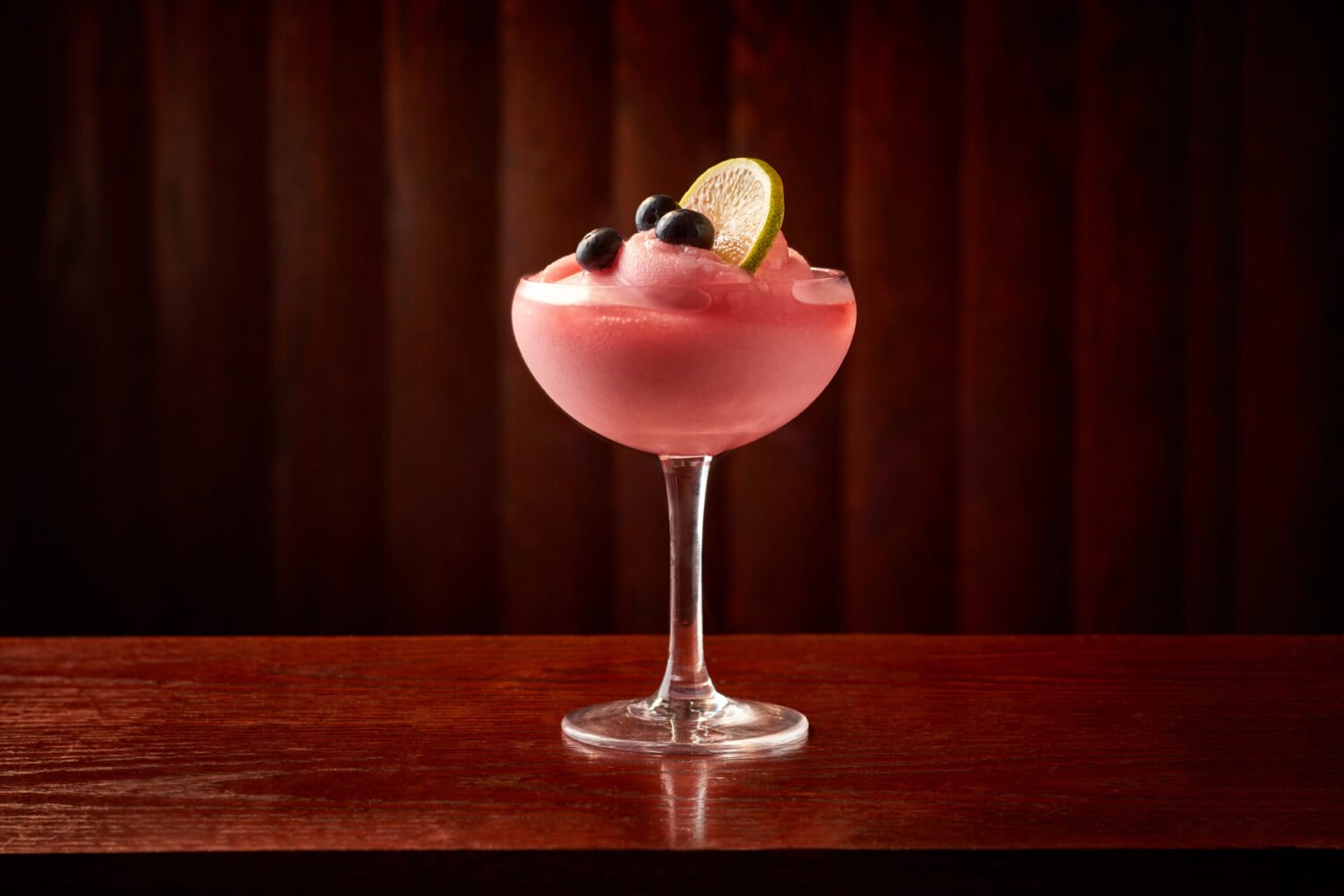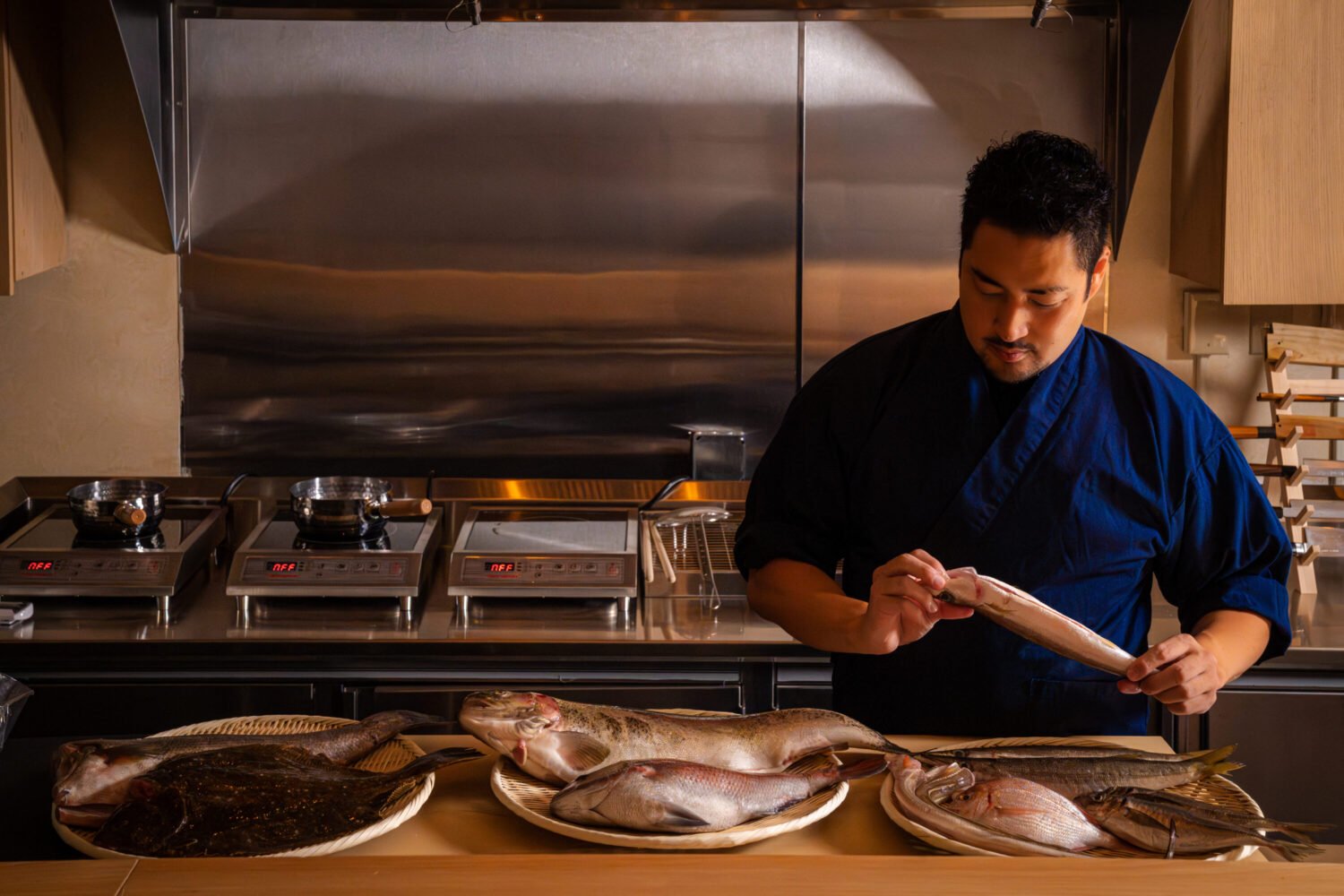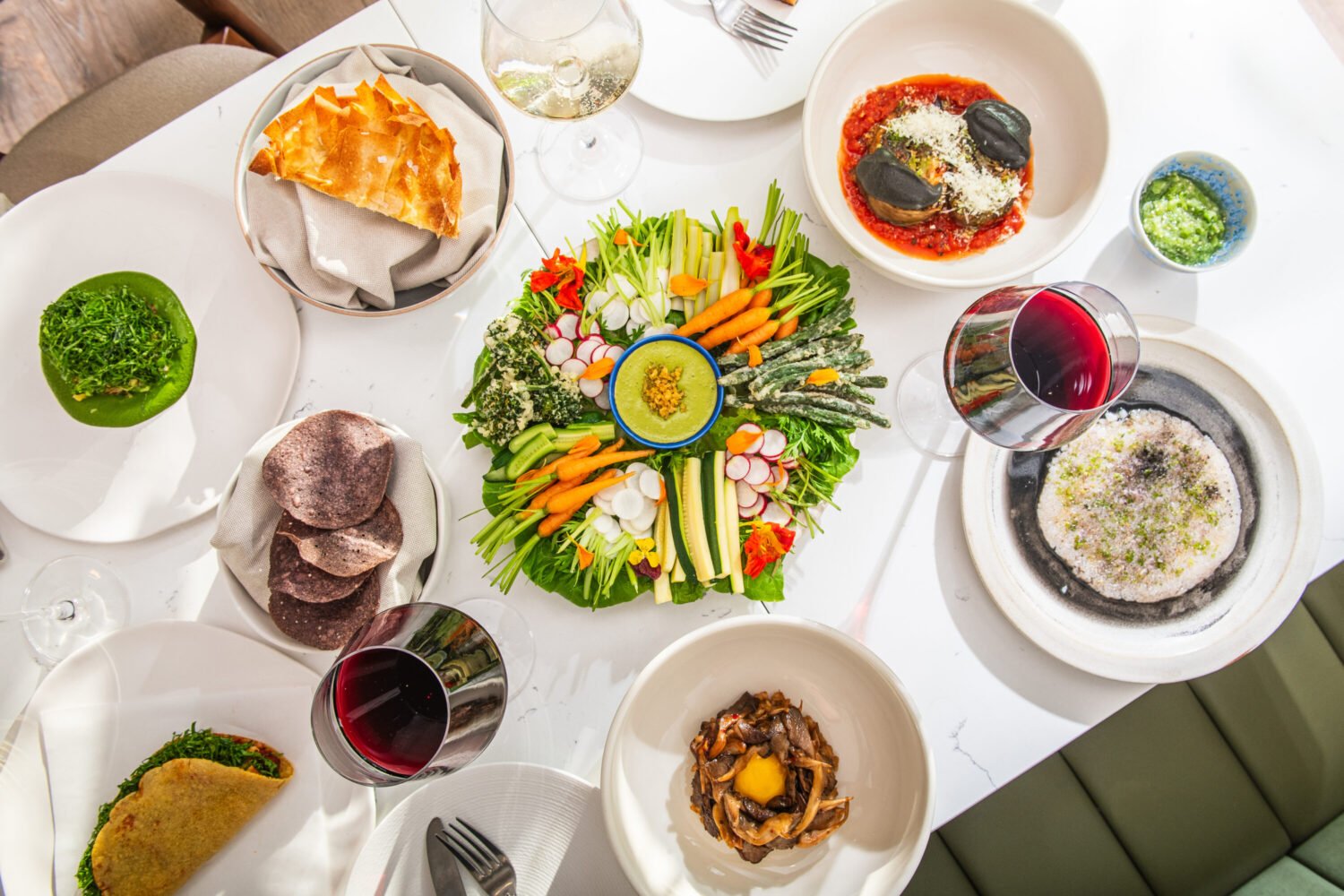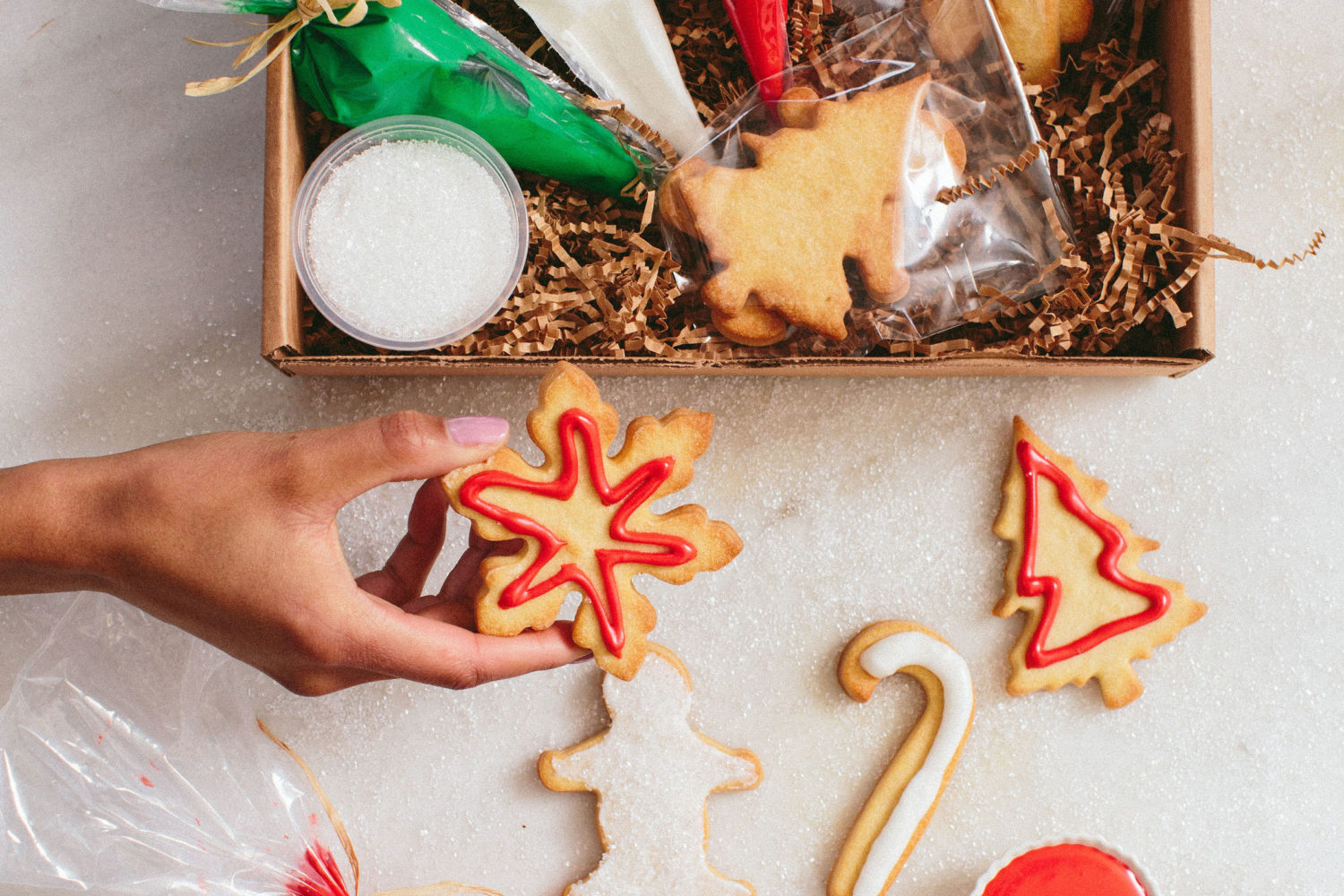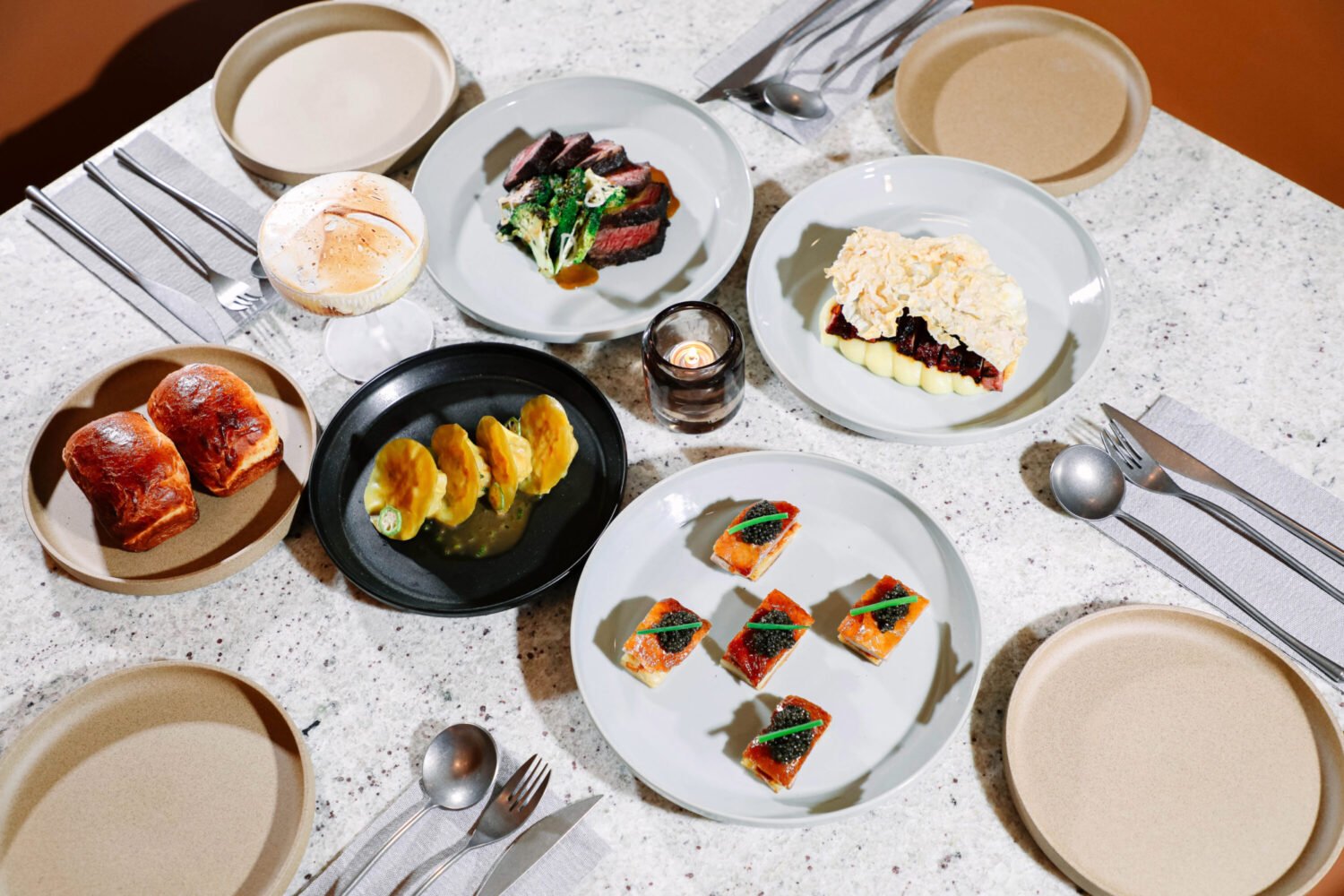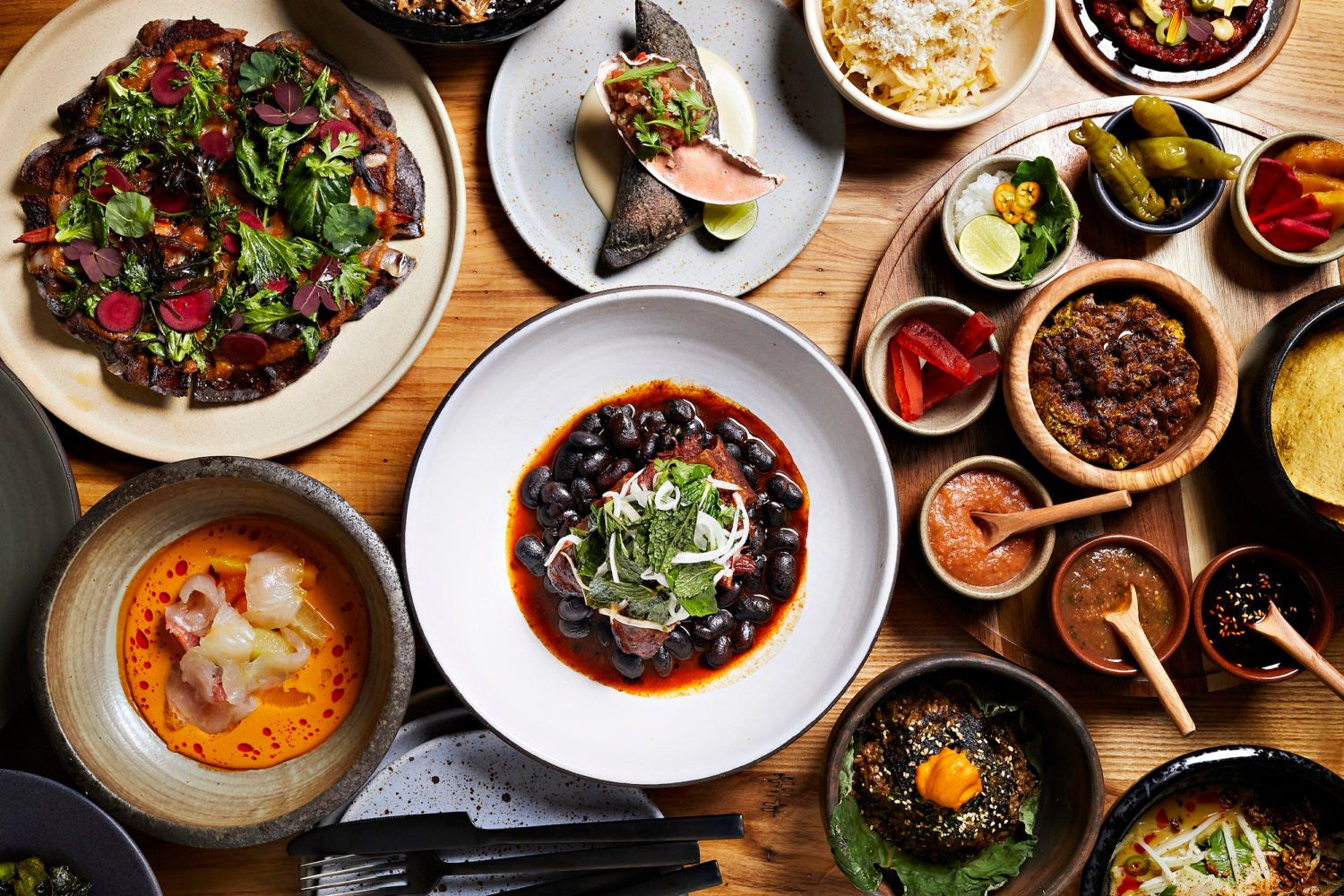Hanging with a bunch of friends for Thanksgiving dinner can be a blast. But just because crazy Aunt Alice is out of the picture doesn’t make things easy. Like any big dinner party, there are plenty of dos and don’ts for hosts and guests alike. Here are the ten most important for a successful—and worry-free—Friendsgiving.
For Hosts:
1. Accept and seek help
I promise you’ll regret saying “just yourself” when guests ask what to bring. The best Friendsgiving plan of attack is potluck-style, where the host makes the turkey—no one wants to schlep an 18-pound bird—and everyone brings a side dish, dessert, or booze.
Say you and/or your friends can do little more than microwave ramen. Turkey is like the Mount Everest of roasting—except much, much drier. Skip the headache and get a whole restaurant-prepared feast to go—here’s our 2014 Turkey Day takeout guide—or supplement your centerpiece with sides and desserts. Even a spread of appetizers and snacks are a great place to outsource, as everyone can nibble happily away while tending to the main meal.
2. Inquire about allergies/dietary restrictions
No, don’t make a separate tofurkey for the one vegetarian. Sadly, though, if you want to be a good host, you’ll need to ask guests about allergies or restrictions upon invitation. Even if the whole meal doesn’t cater to their needs—and it shouldn’t—you can be mindful of omitting bacon/cheese/wheat in one or two dishes, and can always ask that they bring supplemental items.
3. Buy bulk booze
Yes, Thanksgiving can be a feel-good, homey meal. But it’s also an expensive one to prepare, especially if you’re not going potluck-style. One place to save: alcohol. Unless you’re asking each guest to b.y.o.—never a bad idea if they’re not contributing food—opt for a case of wine. A dozen bottles may sound excessive, but it’s often cheaper than grabbing a few from Whole Foods. Georgetown’s “social” Safeway, for example, has great deals on cases for members (and the sign-up is free).
4. Borrow dishes
So. Many. Dishes. A full Thanksgiving spread requires a catering company’s worth of pots, pans, and serving vessels. Don’t feel bad asking guests to bring gravy boats, platters, wine glasses, etc., or borrowing your friend’s cookware for advance prep.
5. Remember ice
Barbecues and copious amount of ice go hand-in-hand, but Thanksgiving? Trust me, get lots of ice. Someone will want to chill beer, another person wants ice water, a third brought pumpkin ice cream for dessert (lame) and there’s no space in the freezer. And for that matter, remember water glasses. Friendsgiving can’t be fueled on whiskey and wine alone.
For Guests:
1. Follow directions
Hosts, especially foodie hosts, tend to have menus in mind—and your grandma’s potatoes may sadly not be part of the plan. Ask what you can provide, as well as some more detailed questions. Is the meal traditional or follow another kind of cuisine? Does he/she need any vegetarian/gluten-free additions to the lineup? Once you’ve received marching orders, don’t go rogue (unless it’s the direction below).
2. But always ignore one
“Just yourself.” No, never bring just yourself, even if the host is a kitchen wiz with a stocked bar. An extra bottle of booze or wine never hurts, or opt for a flower bouquet or hostess gift if they seem truly set on alcohol. Another great addition to Friendsgiving: board games. Did someone say post-pie Jenga?
3. Be respectful about allergies/dietary restrictions
Sorry, Paleos, normal folks don’t want to prepare a Thanksgiving free of dairy, refined sugar, and most carbs, a.k.a. 99 percent of what makes Turkey Day wonderful. If you can take a break from dieting, or pick around certain items, try to stay mum about culinary quibbles. On the flip side, a conscientious host will be horrified that you never mentioned vegetarianism and can’t eat a single dish he/she cooked. Best to speak up early in strict cases—yes, even if they don’t ask—and offer to bring something.
4. Clean before pie
A mammoth pile of dishes isn’t daunting if everyone pitches in, so pour yet another glass of wine and tackle the first round of pans before slicing the pie. That way there’s more stomach room for dessert, and you can slip into a guilt-free food coma at the end.
5. Start traditions
Friendsgiving doesn’t have to be a haphazard “orphan” gathering. If you have a blast, offer to host a similar gathering the next year. If your stuffing was the talk of the party, send everyone a copy of the recipe. Friends can be family, too.



